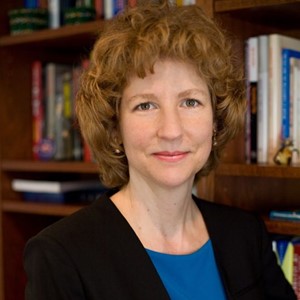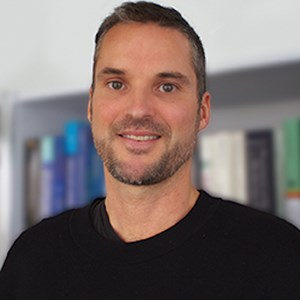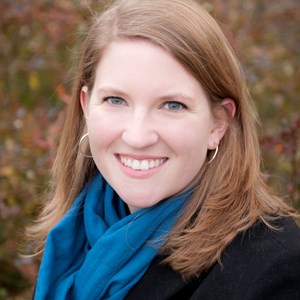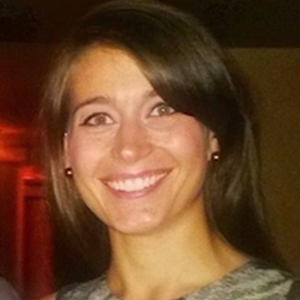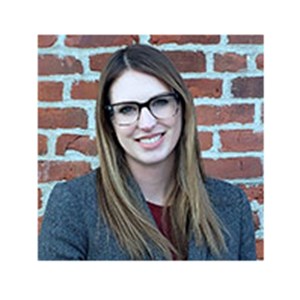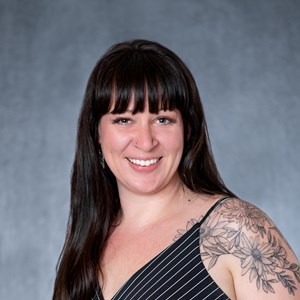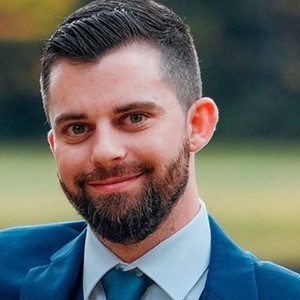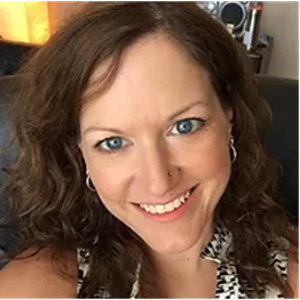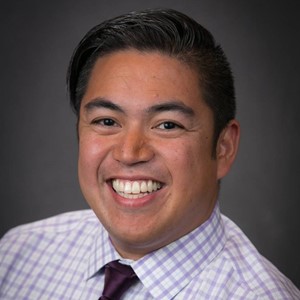2023 SPA Convention
March 28 - April 2 | Austin, TX
Workshops | Featured Lectures | Pricing | Continuing Education Credits | Schedule-at-a-Glance | Full Schedule | Volunteer Here | Community Partners | COVID-19 Meeting Policy
Access the Mobile "App"
Over 100 Continuing Education Credit Hours to Choose From!
 The Society for Personality Assessment (SPA) is THE place where personality researchers and practitioners alike come together to stay at the forefront of what is possible in terms of evidence-based and treatment useful assessment developments. Providing a range of CE workshops and scientific and clinical talks, the SPA Convention is of interest to people who are just learning about assessment, to those who would like to brush up or learn about the newest finding techniques, to skilled experts interested in staying at the cutting edge.
The Society for Personality Assessment (SPA) is THE place where personality researchers and practitioners alike come together to stay at the forefront of what is possible in terms of evidence-based and treatment useful assessment developments. Providing a range of CE workshops and scientific and clinical talks, the SPA Convention is of interest to people who are just learning about assessment, to those who would like to brush up or learn about the newest finding techniques, to skilled experts interested in staying at the cutting edge.
At this moment, we are planning on having a virtual component which will include all the Featured Lectures along with other select concurrent sessions. However, workshops happening before and after the convention will NOT available for virtual viewing.
Registration is now OPEN!
Workshops
Click on each day below to view workshops. To view full workshop abstracts, please click here.
Full Day Workshop (8:30 am- 5:30 pm)
Collaborating in the Past, Present, and Future: Pre-Conference Institute on Therapeutic Assessment
Full Day Workshops (8:30 pm - 5:30 pm) | 7 CE Credits
Multi-Method and Contextual, Diversity-Sensitive Methods in Assessment
Presenters: A. Jordan Wright, PhD, and Hadas Pade, PsyD
MCMI-IV and MACI-II: Operationalizing the Millon Inventories from Adolescence through Adulthood
Presenters: Seth Grossman, PsyD, and Robert Trigone, PhD
Therapeutic Assessment with Children: A Brief Intervention to Address the Current Mental Health Crisis in Children and Families
Presenters: Stephin Finn, PhD, Marita Frackowiak, PhD, and Dale Rudin, PhD
TA in the Bedroom: Fostering Intimacy in Couples in an Era of Fear and Disconnection
Presenters: Pamela Schaber, PhD, and Filippo Aschieri, PhD
Half Day Workshops (8:30 am - 12:15 pm) | 3.5 CE Credits
Personality Assessment Consultation Opportunites with the Federal Aviation Administration: An Orientation to Practices and Standards, V. 2
Presenter: Ray King, PhD, JD
Half Day Workshops (1:30 pm - 5:15 pm) | 3.5 CE Credits
From SPSS to R, Why and How to Make the Transition
Presenters: Ruam R.F.A. Pimental, MA, and Gregory Meyer, PhD
Using the Personality Assessment Inventory-Adolescent in Clinical and Forensic Settings
Presenters: Nora Charles, PhD, and Paula Floyd
Half Day Workshops (8:30 am - 12:15pm) | 3.5 CE Credits
Assessing Multicultural Clients with Bipolar Disorder: Challenges, Implications and Solutions
Presenter: Linda McGhee, PsyD, JD
Clinical Application of the DSM-5 Alternative Model for Persoanlity Disorders (AMPD)
Presenters: Bob Krueger, PhD, and Tanya Freedland, MPS
Risk Assessment of People Convicted for Sexual Offenses: Where Are We and Where Do We Go From Here?
Presenter: Wineke Smid, PhD
Recent Developments with the PAI
Presenter: Les Morey, PhD
Using the AAP in an Adolescent Therapeutic Assessment: The LIngering Effect of a Mother's Attachment Trauma on Her Daughter's Failed Mourning
Presenters: Carol George, PhD, and Melissa Lehmann, PhD
Full Day Workshop (8:30 am - 5:30 pm) | 7 CE Credits
Introduction to the MMPI-3 for Psychology Practice
Presenters: Martin Sellbom, PhD, and Dustin Wygant, PhD
Therapeutic Assessment (TA) in Clients with Personality Disorder(s): Pitfalls and Adaptions
Presenters: Hilde De Saeger, PhD, and Jan Kamphuis, PhD
Featured Lectures
To view additional information on Featured Lectures, please click here.
Presenter: Dr. Apryl Alexander
Racism, discrimination, and prejudice harm People of Color's physical and mental health and well-being and are potentially traumatic incidents. However, racial, cultural, intergenerational, and/or historical trauma are rarely consistently considered in the assessment of trauma along with other common forms of trauma, such as physical abuse, sexual abuse, and intimate partner violence. Racial trauma refers traumatic events related to real or perceived experiences of racial discrimination, which can include threats of harm or injury, humiliation, or witnessing harm to People of Color (Carter, 2007; Comas-Díaz et al., 2019). Psychologists have also suggested that cultural factors, such as cultural mistrust and exposure to police violence, should also be considered in evaluations (Dixon et al., in press; Isen, 2022). This aligns with other recent calls for anti-racist psychological assessment. Indeed, Byrd et al. (2021) note, “An antiracist psychology will consistently identify, accurately label, and directly address racism as it is encountered” (p. 280). From daily microaggressions to contacts with law enforcement, it is important for psychologists to capture these incidents in the process of their evaluations. Dr. Alexander will discuss how assessment tools that can be used to evaluate racial and cultural trauma to engage in better anti-racist psychological practice.
Presenter: Dr. James Pennebaker
The ways people express themselves in everyday language is consistent across time and context. These linguistic fingerprints are most visible in people's use of function words (e.g. pronouns, prepositions) rather than in the content of their speech. Multiple studies point to the power of text analysis in the assessment of personality and in the prediction of important social, emotional, and cognitive behaviors in people's lives. Self-reports certainly have their role but it's time to expand our thinking.
Presenters: Panelist TBD
We are excited to announce the inaugural SPA Career Development Plenary, a new take on the plenary session, empowering attendees to learn and grow with each other as we explore the complexities of careers in personality assessment.
The Plenary’s innovative format is being designed to facilitate communion, collaboration, and inspiration, with the majority of the session taking place in five small group interactions, each focused on a different personality assessment career: Personality assessment science in academic psychology, Personality assessment training, Applied practice, Large governmental/medical organizations, and Forensics.
Free to move to and from different groups as suits your focus and interest, the conversations will cover the full range of careers in personality assessment, exploring the considerable diversity and distinctions within each. The goal of the experience is for SPA members and conference attendees to further their understanding of the career landscape in personality assessment through the experience and wisdom of senior personality assessors facilitating the discussions and sharing lessons from the navigation of their unique professional paths. Our facilitators will promote productive and inclusive conversations about what life is really like in each of these domains of personality assessment. Discussion topics may include issues of power, diversity, and equity; practical issues such as how to best allocate one’s time or when and how to apply for different positions; brass tacks questions about workload, pay, management, and benefits; and anything else that might come up.
We encourage all conference attendees of every career stage to participate, including students and early career professionals who are still considering career options, more advanced trainees seeking the best preparation for their chosen path, and experienced professionals willing to share their experiences and support learning together. Join us for an opportunity to network in community with a diverse group of personality assessment professionals, explore the many professional applications of personality assessment, and enrich our professional pipelines by supporting emerging professionals as they prepare for productive and satisfying careers.
Presenters: Jan Kamphuis, Arjen Noordhof, Christopher Hopwood
Panelist: TBD
Utilizing the article “When and How Assessment Matters: An Update on the Treatment Utility of Clinical Assessment (TUCA)” as a starting point, this interactive plenary will provide attendees the opportunity to think about how to advance and study the Treatment Utility of Clinical Assessment (TUCA; or the extent to which clinical assessment enhances subsequent treatment benefits for patients), and what this might mean for SPA. Following a brief introduction lecture, a subsequent panel discussion will engage the membership in thinking about concrete ways how the SPA community might advance this concept and its practice. With defining TUCA and then communicating its value as a strategic focus for the 2023 calendar year, we encourage all research teams interested in applying for the Treatment Utility of Clinical Assessment grant to attend and contribute to this plenary. Please see the (adapted) public significance statement of the article below for more information:
Public Significance Statement: The degree to which clinical assessment has treatment utility , i.e, the extent to which clinical assessment enhances subsequent treatment benefits for patients has long been controversial. We suggest specifying and examining more closely the conditions under which assessment can—or cannot—contribute to treatment process and ultimately patient benefit. Clear thinking about this important topic can contribute to improved research as well as more efficient practice of clinical assessment. We distinguish direct and indirect benefits of assessment and advocate the implementation of some form of stepped assessment in clinical practice.
The science-based technology of personality assessment by self-report is approximately a century and a quarter old. In this presentation, I review its historical foundations and evolution to contemporary approaches. I then discuss the strengths and challenges of these techniques and propose ways the field may advance. Key points include the advantages of: Grounding self-report-based measures in empirically developed and supported personality and psychopathology models; considering setting-specific variables when interpreting test scores; incorporating diversity-sensitive practices; and capitalizing on the heretofore unrealized potential of computer technology.
Pricing
Click here to access information on Convention scholarships.
In-Person Tickets
| Member Type |
Early Registration (11/1/22 - 2/14/23) |
Regular Registration (2/15/23 - 3/24/23) |
Late Registration (3/24/23 - 4/9/23) |
| Student | $99 | $124 | $164 |
| Early-Career | $159 | $184 | $224 |
| Member/Fellow/Associate | $259 | $309 | $359 |
| Non-Member Student | $129 | $154 | $194 |
| Non-Member Early-Career | $214 | $239 | $279 |
| Non-Member | $334 | $385 | $434 |
Virtual Tickets
| Member Type |
Early Registration (11/1/22 - 2/14/23) |
Regular Registration (2/15/23 - 3/24/23) |
Late Registration (3/24/23 - 4/9/23) |
| Student | $49 | $59 | $79 |
| Early-Career | $74 | $94 | $134 |
| Member/Fellow/Associate | $124 | $144 | $184 |
| Non-Member Student | $79 | $89 | $109 |
| Non-Member Early-Career | $129 | $149 | $189 |
| Non-Member | $199 | $229 | $269 |
Half-Day Workshop Tickets
| Member Type |
Early Registration (11/1/22 - 2/14/23) |
Regular Registration (2/15/23 - 3/24/23) |
Late Registration (3/24/23 - 4/9/23) |
| Student | $59 | $84 | $124 |
| Early-Career | $104 | $129 | $169 |
| Member/Fellow/Associate | $129 | $179 | $229 |
| Non-Member Student | $89 | $114 | $154 |
| Non-Member Early-Career | $159 | $184 | $224 |
| Non-Member | $204 | $254 | $304 |
Full-Day Workshop Tickets
| Member Type |
Early Registration (11/1/22 - 2/14/23) |
Regular Registration (2/15/23 - 3/24/23) |
Late Registration (3/24/23 - 4/9/23) |
| Student | $99 | $124 | $164 |
| Early-Career | $154 | $179 | $219 |
| Member/Fellow/Associate | $199 | $249 | $299 |
| Non-Member Student | $129 | $154 | $194 |
| Non-Member Early Career | $209 | $234 | $274 |
| Non-Member | $274 | $324 |
$374 |
Cancellation Policy - Cancellations will be accepted for the Annual Convention and/or a workshop, less a $75 administrative fee, until February 28, 2023. After that date no refunds will be granted.
Book a Room
Continuing Education Information
This year, we have over 100 hours of continuing education credits available for you to earn by attending LIVE in-person or virtually. More information will be made available for those who watch a recorded session after the Convention and would like to receive CE credits in March.
View Sessions with CE credits Available
Cultural Mistrust and Psychological Assessment: A Nuanced Look at Paranoia Scores
Annual Update on Experimental and Neurophysiological Rorschach Research
Walking a fine line: Talking with clients about attachment
Carving Your Path: Career Development Panel
Characterizing models of psychopathology using the interpersonal circumplex
Interpersonal Assessment at Multiple Timescales: Applications and Implications
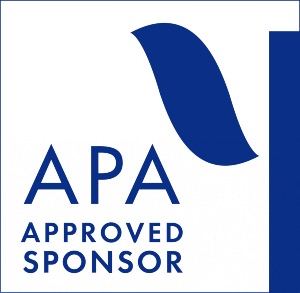 The Society for Personality Assessment (SPA) is approved by the American Psychological Association to sponsor continuing education for psychologists. SPA maintains responsibility for this program and its content.
The Society for Personality Assessment (SPA) is approved by the American Psychological Association to sponsor continuing education for psychologists. SPA maintains responsibility for this program and its content.
Society for Personality Assessment is recognized by the New York State Education Department's State Board for Psychology as an approved provider of continuing education for licensed psychologists #PSY-0218.
2022 SPA Annual Convention Program Book
2021 SPA Annual Convention Program Book
2019 SPA Annual Convention Program Book
2018 SPA Annual Convention Program Book
2017 SPA Annual Convention Program Book
2016 SPA Annual Convention Program Book
2015 SPA Annual Convention Program Book

